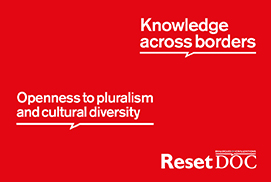20 December 2010
The first round of voting held on November 28th resulted in ballot-rigging, violence and the arrest of opposition candidates. Citizens’ dissent travelled on the web, but the Internet holds no seats of power. And in the December 5th second ballot, the only party running was the National Democratic Party (NDP) led by current President Hosni Mubarak, who in the end won a total of 419 seats out of the 508 available. The Muslim Brotherhood, until now the main opposition group with 88 members in parliament, had unbelievably not managed to win even a single seat. Few consider the parliament that has resulted from these elections as being representative of the Egyptian people. Out of 80 million citizens, only 50% managed to register for the electoral lists. According to official data, turnout was on average 35%, while NGO’s reported it as being only 10%. This is a dark picture that provides little hope of change in the Arab world’s most populous country, also considering the 2011 presidential election. We discussed these issues with Issandr El Amrani, a journalist and independent analyst based in Cairo. His blog can be read at www.arabist.net.


